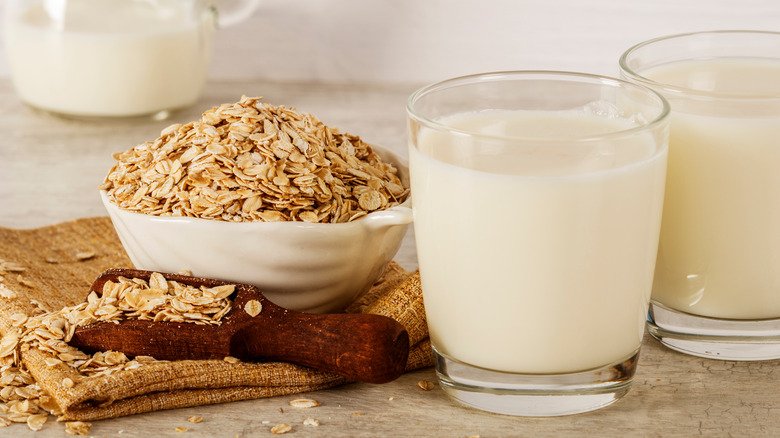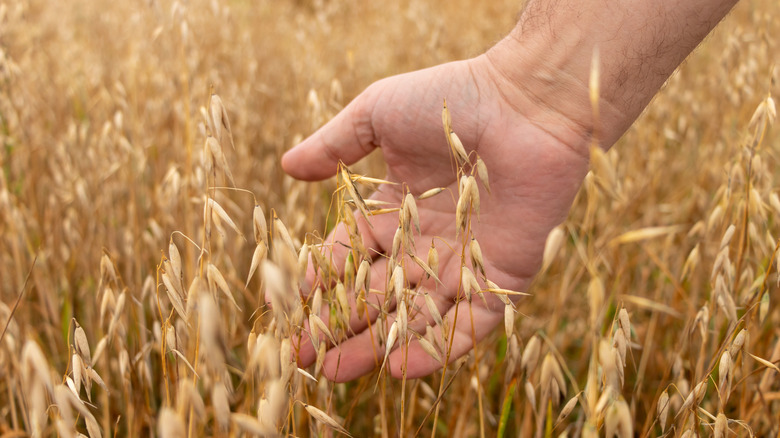This Country Produces More Oats Than Any Other In The World
We should all be very familiar with oats — we use them for our oatmeal, cookies, cakes, liquor, substitute milk, and bread. Those little cereal grains are some of the healthiest we can enjoy (via World Atlas). They can help lower your blood pressure and prevent heart disease. Oats can even be eaten by those with celiac disease or gluten intolerance, unlike barley, wheat, or rye grains (via Coeliac UK). The amazing qualities of this seed never cease, and at times, oats have even been used in medicine and skin care. Even cattle farmers have their herds graze on harvested oat fields.
If it isn't obvious after reading all that, oats are extremely useful and imperative to a lot of the world's diet. So, where does most of it grow? Where can you imagine swaths of golden fields, shining in the sunlight, waiting for the combine to collect the seeds?
Bet Russia wasn't your first guess
"Crop Science" by X. Zhou claims Iran, Iraq, and Turkey as the birthplaces of oats, but after centuries of globalization and industrial agriculture, these countries are no longer at the heart of grain production. Instead, Russia is the world leader. Atlas Big reports that Russia produces 4,424,433 tons of oats per year, with Canada arriving in second place. These northern countries grow the most oats in the world because the cereal grain is extremely hardy. Oats can survive the extreme cold and these countries have a lot of undeveloped acreage to grow on.
Recently, however, oats have been on the rocks. ABC News informs us that because of Putin's war on Ukraine, the Ukrainian government has stopped exporting all of their grains in an attempt to keep the people within their borders from starvation. In response, the UK has also banned cereal grain exports, cutting out two major growers from the global market. This, in turn, affects the food supply chain in Europe, Africa, Asia, and anywhere else that sources their oats from these countries. We can expect the price of cereal grains to rise exponentially over the next few months and more so as the war goes on. Countries like Canada are also projecting a record low for oat production in the coming year and will be unable to make up for the loss of Ukraine's cereal grains (via AGCanada).

